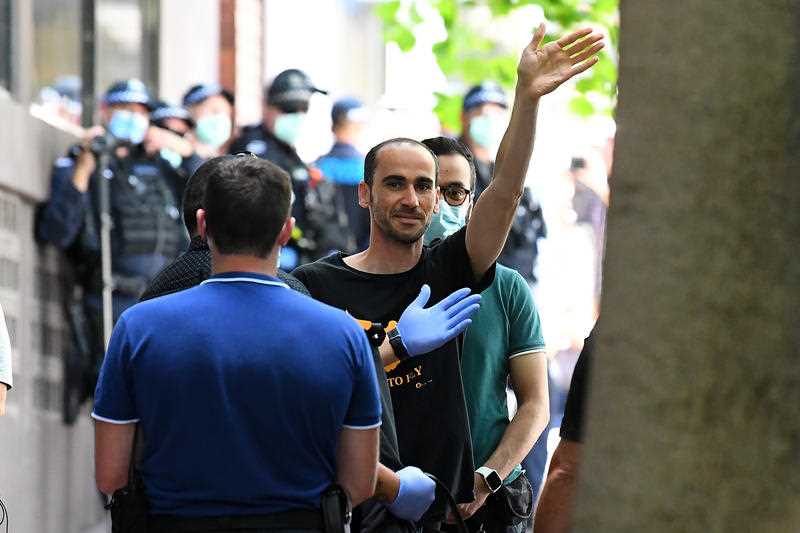An asylum seeker who claims he was unlawfully detained in two Melbourne hotels is suing the Australian government.
If Mostafa Azimitabar, 35, wins his case in the federal court, the government’s practice of keeping asylum seekers indefinitely in hotels (termed “Alternative Places of Detention”) could be deemed illegal, paving the way for more refugees to seek compensation.
The Kurdish-Iranian who first arrived in Australia by boat in 2013 claims the federal government does not have the power under the Migration Act to turn hotels into “prisons”.
He spent most of his almost eight years in detention on Manus Island in Papua New Guinea until he was transferred to Australia for medical care in late 2019.
Mr Azimitabar was held for 14 months in the Mantra and Park hotels in Melbourne, before being released into the community on a restricted visa.
He told AAP that while being in the mainland for medical care he felt like he was being punished.
“I suffered from asthma and post traumatic stress disorder and I really struggled in the time I was locked up in those so-called hotels,” he said.
In one hotel he was not allowed to open a window and in the other he was only allowed to open it 10cm. He would slide his hand outside to catch a little sun and give himself some vitamin D.
Mr Azimitabar’s legal fight began in the federal court on Friday, with his team to argue that the government has misinterpreted the law.
“There’s no provision in the act that says the minister can create an APOD (alternative place of detention)”, solicitor Michael Bradley told AAP.
“It would mean the whole thing was always illegal.
“(Mr Azimitabar) is bringing this case as a test in the interest of everyone whose in that situation or who is still in that situation. It’s very courageous of him to do so.”
Mr Bradley said it was an open question as to how much compensation he would seek.
The Department of Home Affairs told AAP that as the case is before court it would be inappropriate to comment on it.
The latest statistics from the department show that as at May 31 this year there were a total of 78 individuals living in APODs, which include hospitals, aged care and mental health facilities, and hotel accommodation.
Amnesty International Australia’s refugee adviser Graham Thom said that when hotels initially began being used to detain people, the stay was brief – a temporary step before living in the community – and they were a less severe form of detention.
“What changed was when they started to bring back medevac refugees,” Dr Thom told AAP.
Now there are individuals who have been locked up in a hotel for nearly two years, he said.
Those detained in hotels are typically locked in their rooms 23 hours a day with no access to sunlight and no proper exercise facilities and they have harsher environments than purpose-built detention centres.
“We had the ridiculous situation where people in the APODs had to request a visit to a detention centre to get access to a gym,” Dr Thom said.
“The whole situation has become surreal, but unfortunately with real human beings at the centre.”
Now in Sydney, Mr Azimitabar lives freely but remains barred from building his life. He wants to study but is not allowed to under his current status.
“I would like to study human rights. Why does the Australian government discriminate against me,” he said.
“I am a human. I have hopes and dreams.”
AAP



